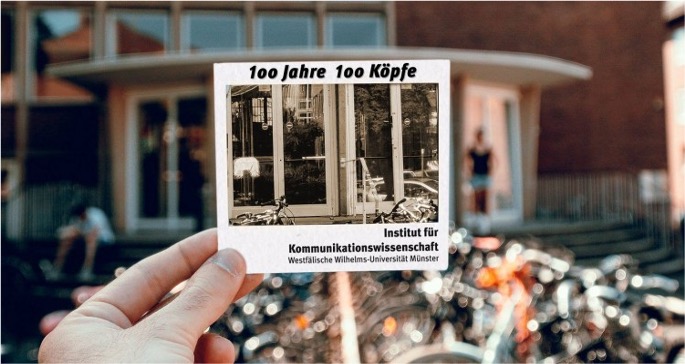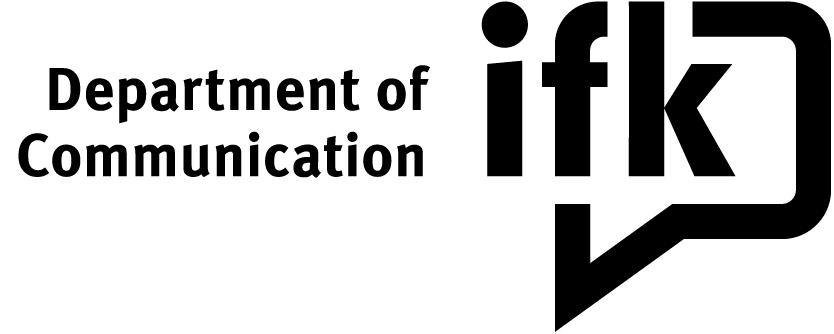
From Press Archive to Communication Studies: History of the IfK
Important foundations for the establishment of the Department of Communication in Münster were laid during WWI. In 1915 the historian Aloys Meister began creating a press archive and founded the interdisciplinary Committee for the Newspaper Industry, whose members regularly held lectures covering questions concerning the press. Only a few years later, in 1919, the Committee for Newspaper Affairs was founded and the journalist Friedrich Castelle served as its director. The Committee’s first private lecturer was Karl D’Ester. Unfortunately, the University had to end the program due to insufficient funding.
Funded by the Newspaper Publishing Association
The historian and director of the press office (Koblenz) Günther Wohlers founded the independent Department of Newspaper Affairs in 1927 with funds from the North Rhine-Westphalian Newspaper Publishing Association. Two years later, editor Heinrich Bause began managing the Department, which was renamed Department of News Publishing in 1935. The journalist Ernst H. Lehmann managed the Department from 1936–1938 and was succeeded by Hubert Max. Courses and research activities were halted during WWII. When they resumed in 1946, historian and journalist Walter Hagemann came to Münster to work as professor and director of the Department of News Publishing.
Expansion of the Subject under Hagemann
In 1949 the Department of News Publishing under Hagemann was renamed the Department of Journalism to take into account the new courses and syllabi. The Department of Journalism now covered all journalistic aspects and processes. Through Hagemann’s successful management, productivity, and enthusiasm, the Department of Journalism in Münster gained prestige and a good reputation.
After Hagemann’s suspension in 1959, his assistant Günter Kieslich became the Department’s director. Dutch sociologist Hendricus J. Prakke was appointed director in 1960. In introducing functional research methods and expanding the Department’s interests to include all communication studies, Prakke proved to be very prolific.
Reactions to Change: Renaming the Department
Prakke was succeeded by his student Winfried B. Lerg, who became acting director in 1969 and ordinarius and director in 1971. His term as director lasted 25 years and is the longest term served at this Department in Münster. Siegfried Weischenberg became director in 1994. The political scientist Dietrich Thränhardt served as director for a short period and was succeeded by (each successor serving a complete term): Siegfried J. Schmidt (1997); Miriam Meckel (1999); Siegfried J. Schmidt (2001); Bernd Blöbaum (2002); Christoph Neuberger (2007) Frank Marcinkowski (2009); Ulrike Röttger (2011)., Jutta Röser (2014), Thorsten Quandt (2012), Volker Gehrau has been managing the Department since 2018.
In 1998 the Department was renamed The Department of Communication to reflect developments in the field of communication. Additionally, the Department was divided into two divisions: media studies and journalism.

